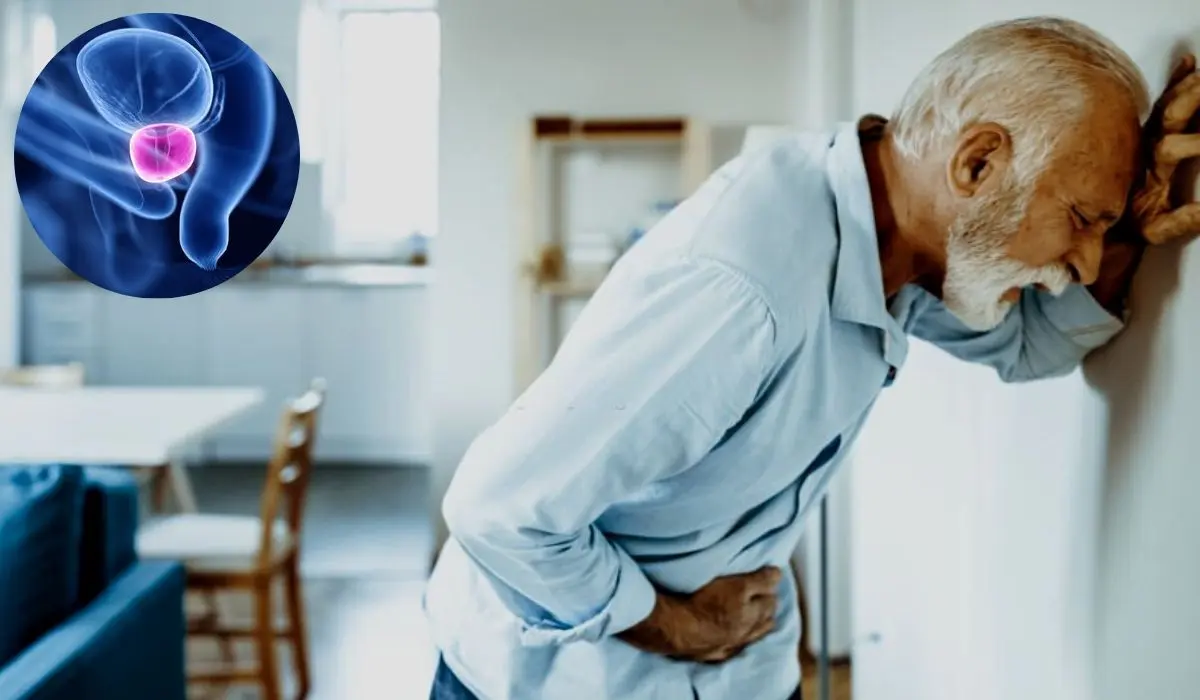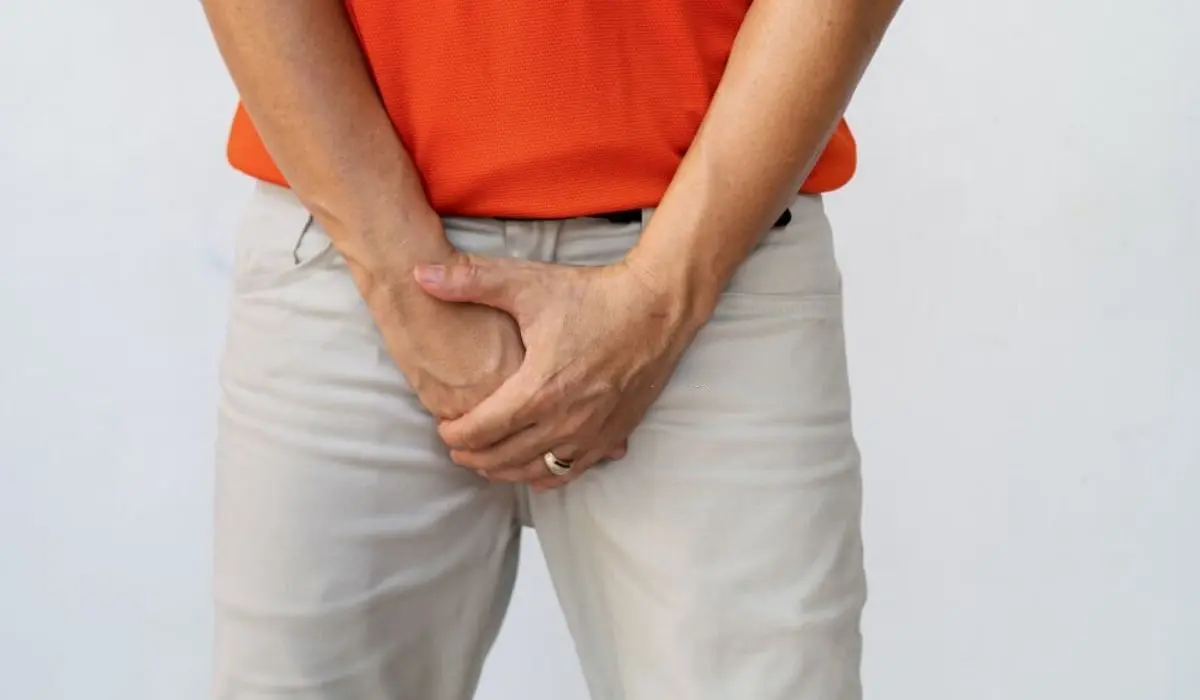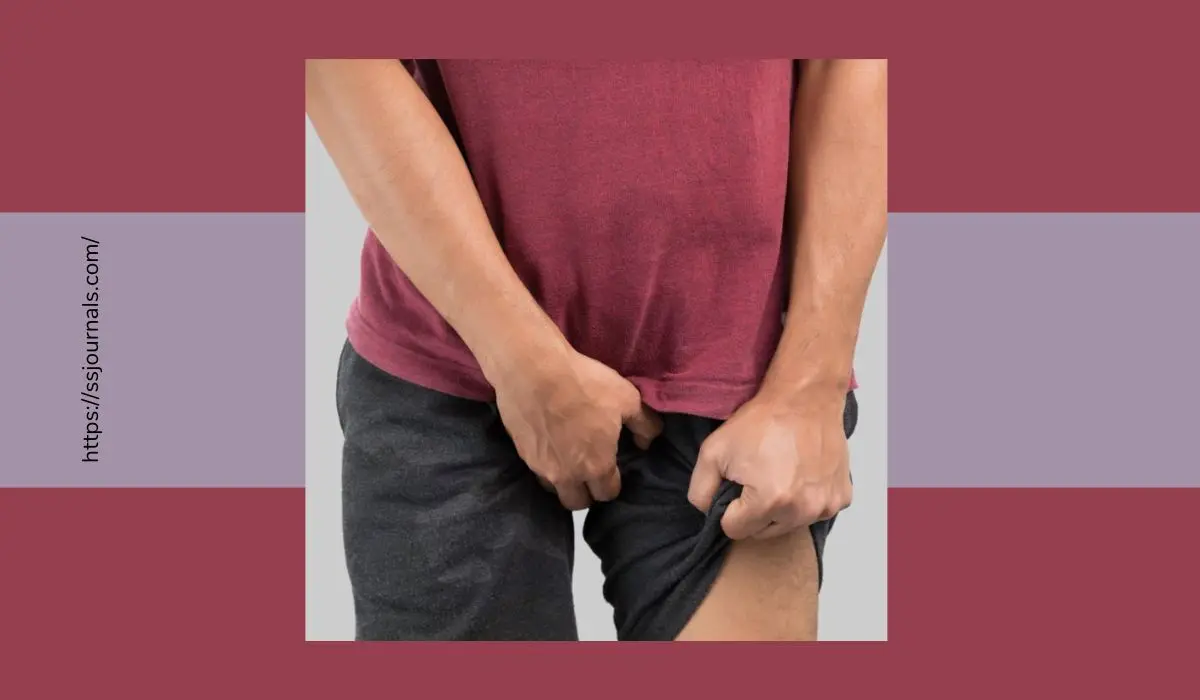Benign prostatic hyperplasia (BPH), also known as an enlarged prostate, is a common problem for men as they age. This article outlines how to avoid it and stay healthy.
Maintaining a healthy lifestyle is key to warding off an enlarged prostate. Exercise such as swimming, jogging, or walking can help.
A balanced diet with fruits, vegetables, whole grains, and lean proteins can provide important nutrients to keep the prostate healthy.
Drinking alcohol and smoking can increase the risk of prostate issues. So it’s best to limit alcohol intake and quit smoking.
Obesity has been linked to an enlarged prostate. So, staying at a healthy weight with a good diet and exercise is important for prevention.
What Is An Enlarged Prostate?
Benign prostatic hyperplasia (BPH), also known as an enlarged prostate, is a common condition that affects men as they age.
The prostate gland, which is located beneath the bladder and surrounds the urethra, grows in size. This can squeeze and obstruct the urethra, causing urinary issues.
Symptoms may include frequent peeing, difficulty starting and stopping urine, weak urine stream, and the feeling of incomplete bladder emptying.

It is thought that BPH is caused by an increase in dihydrotestosterone (DHT) hormone levels.
DHT helps cells in the prostate to grow and develop, enlarging it over time. Other factors such as lifestyle and genetics can also be a cause.
Men should be aware of symptoms related to an enlarged prostate and seek advice from a healthcare provider if they experience any of them. This will help to prevent further problems.
Almost 50% of men aged 51-60, and up to 90% of men over 80 have BPH – a statistic that shows how common the condition is.
Causes of Enlarged Prostate
To understand the causes of an enlarged prostate, dive into the realm of age and hormonal changes, family history, and lifestyle factors.
Explore how these elements contribute to the development of an enlarged prostate and gain valuable insights into prevention strategies.
🔹 Age And Hormonal Changes
As men age, hormonal changes occur, leading to a decrease in testosterone and an increase in estrogen. This can cause benign prostatic hyperplasia (BPH).
Cellular changes and age-related prostate growth can also affect prostate health. To combat this, people should maintain a healthy lifestyle, eat antioxidant-rich foods, and take natural supplements like saw palmetto extract.
These can help to regulate hormones and inhibit certain enzymes involved in prostate tissue growth.
🔹 Family History
Genes and heredity can be major factors in an enlarged prostate. Here’s the scoop:
- Genes: Genes passed down from parents might make it more likely to have an enlarged prostate.
- Risk: If there’s a family history of the condition, regular check-ups are essential.
- Ethnic Groups: Certain ethnic groups might have a higher chance of enlarged prostates due to genetic differences.
- Environment: Diet and lifestyle habits shared by families can also contribute.
- Age-Related: Changes in hormone levels (like testosterone) might be linked to genetics.
- Future: Knowing family history helps health pros give better care to future generations.
Plus, individual family stories can tell us more than general risk factors and medical research.
🔹 Lifestyle Factors
Sitting still, bad eating habits, and over-indulging in alcohol are linked to having an enlarged prostate.
Not moving enough can cause weight gain, which boosts the chances of a bigger prostate. Also, a diet with lots of red meat and a few fruits and veggies can contribute too.
Excessive alcohol intake can cause hormonal imbalances that may lead to a bigger prostate.
Stress and anxiety are also lifestyle factors that might result in an enlarged prostate.
Stress can make your immune system weak and mess up how your body works, causing various health problems including a bigger prostate.
Plus, unresolved emotions can cause tension in the pelvic region, which affects your prostate.
Environmental factors may play a role in an enlarged prostate too. Toxins like pesticides, heavy metals, and BPA can disrupt hormonal balance and cause an enlarged prostate.
It’s important to remember that lifestyle factors do not cause this condition alone. Age and genetics are also major factors.
The Journal of Urology did a study that showed that men who were physically active had a 30% lower risk of having an enlarged prostate than folks who were sedentary.
Symptoms Of Enlarged Prostate
Symptoms such as weakened urine flow, frequent nighttime urination, difficulty starting and stopping urination, blood in the urine, and even sexual dysfunction can indicate an enlarged prostate.

It is essential to recognize these early signs and seek medical attention, as this can enable early detection and effective management of the condition.
Related:- Can You Still Get Erection After Prostate Removal?
Prevention Strategies
To prevent an enlarged prostate and maintain optimal prostate health, incorporate effective prevention strategies.
Focus on a healthy diet and exercise routine, make necessary lifestyle modifications, and prioritize regular health check-ups.
These measures are the key to safeguarding against prostate issues and promoting overall well-being.
🔹 Healthy Diet And Exercise
A healthy diet and exercise are key for overall well-being. They play a major role in preventing diseases and ensuring a long, quality life. Let’s explore their significance.
For an insight into how important diet and exercise are, here’s some data:
| Benefits | Healthy Diet | Exercise |
| Weight management | Nutritious food helps achieve/maintain optimal weight. | Physical activity burns calories – weight loss/maintenance. |
| Disease prevention | A balanced diet of fruits, veg, grains, lean proteins & healthy fats reduces chronic illnesses. | Workouts strengthen the immune system & lower the chances of disease. |
| Mental well-being | Certain nutrients in a healthy diet improve brain health & mood. | Exercise releases endorphins, reducing stress, anxiety & depression. |
From this, we can see that diet and exercise are key to health.
Also, remember a balanced diet means consuming the right amount of calories & meeting the body’s nutritional needs. Plus, physical activities tailored to individual preferences boost fitness levels.
To make the most of the benefits of diet and exercise, it’s essential to adopt sustainable habits. Small changes in our daily routine lead to long-term positive outcomes.
So, try embracing a healthy lifestyle today. Make conscious choices & witness the transformation it brings.
🔹 Lifestyle Modifications
Making lifestyle changes can improve health!
Regular exercise helps maintain a healthy weight, strengthens muscles, and improves cardiovascular health.
Eating a variety of nutrient-rich foods provides essential vitamins and minerals and reduces the risk of chronic diseases.
Getting enough sleep promotes mental clarity, boosts immunity, regulates hormones, and enhances overall vitality.
Using stress-reducing practices, like meditation, deep breathing, and hobbies, aids in maintaining emotional and mental well-being.
Additionally, staying hydrated and avoiding excessive alcohol consumption can further protect health.
A Harvard Medical School study found that people who practice lifestyle modifications have a 35% lower risk of chronic diseases than those who don’t.
Regular check-ups are important-it’s the one time you hope your doctor won’t find anything wrong!
🔹 Regular Health Check-Ups
Regular health check-ups are a must for keeping good overall well-being. Monitoring our health regularly helps detect any issues early and take preventive measures. Here are three main points about regular check-ups:
- Early Detection: Regular check-ups help doctors spot potential health issues before they get serious. Tests and screenings can detect high blood pressure, diabetes, and even cancer at an early stage.
- Establishing A Baseline: Regular check-ups give doctors a baseline to monitor changes in our health over time. This helps them identify any abnormalities that need further investigation or treatment.
- Promoting Preventive Care: Regular check-ups remind us to prioritize our well-being and take preventive steps to avoid illnesses. Healthcare professionals provide guidance on healthy lifestyle choices, such as diet and exercise, and recommend appropriate screenings or immunizations.
Regular check-ups also give us peace of mind that we’re taking control of our wellness.
Related:- 6 Diet Tips For Prostate Health – Factors To Improve Prostate Health!
Conclusion
Prevent enlarged prostate? Yes, please! A healthy diet, regular exercise, and avoiding certain risk factors like smoking and drinking are a must.
Also, maintaining a healthy weight is key. Obesity increases the risk of prostate enlargement. Including daily physical activity and a balanced diet will help.
Regular check-ups are advised. Early detection can lead to quicker treatment.
Natural remedies such as saw palmetto extract and stinging nettle root may help manage symptoms.

